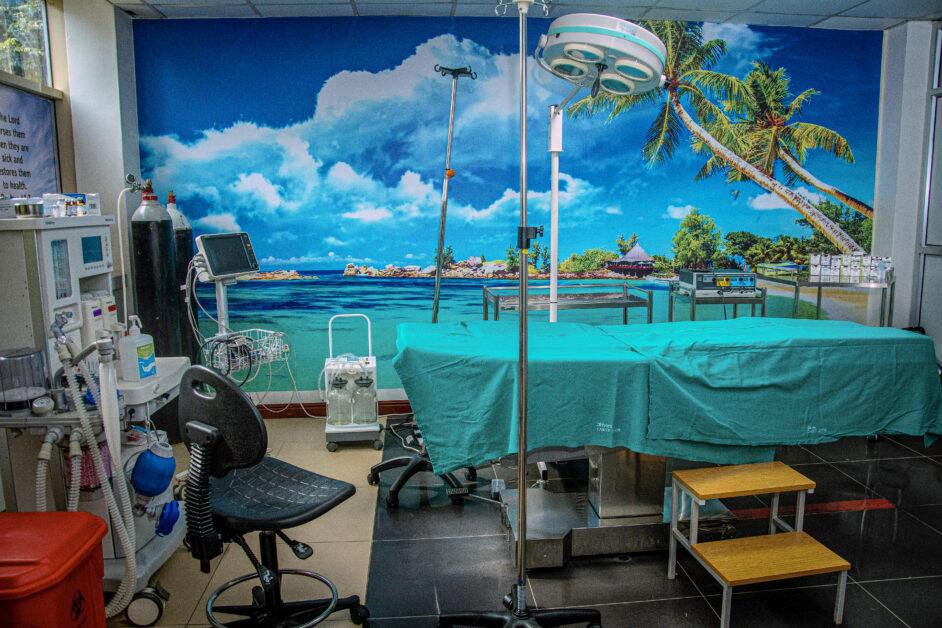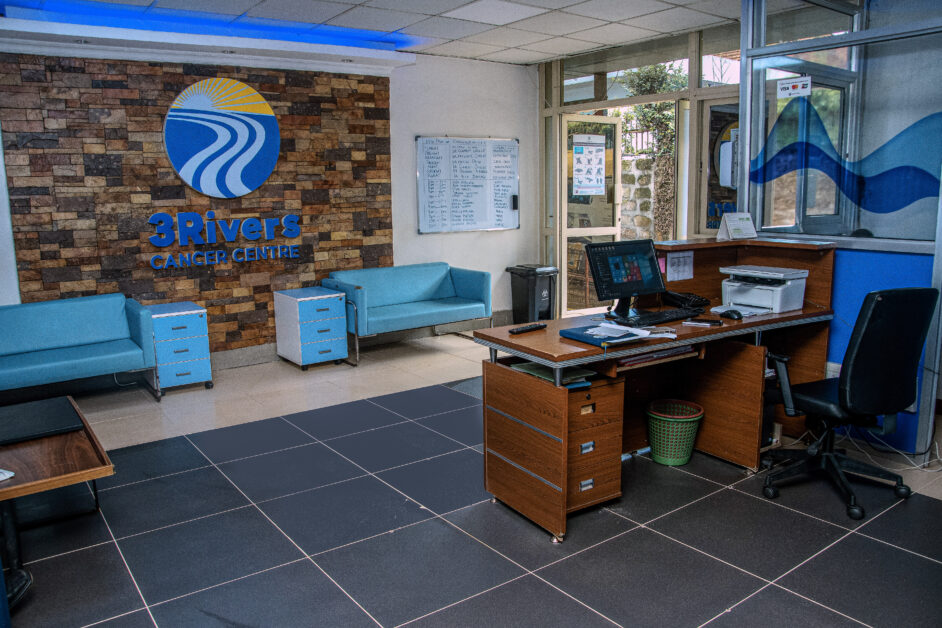In the ever-evolving medical sector, Dr Margaret Mbabazi Sebbale blends her vast expertise, dedication, and leadership, to stand above the crowd.
As a consultant radiologist, her deep commitment to revolutionizing patient care is not merely a profession but a calling and a driving force that propels her tireless efforts to enhance diagnostic precision and improve the lives.
Her journey is a monumental narrative of passion ignited by perseverance and relentless pursuit of excellence.
Dr Mbabazi specializes in thoracic radiology, a subspecialty of diagnostic radiology that focuses on imaging and diagnosis of diseases and conditions affecting the chest, including the lungs, heart, and surrounding organs.
Her work at Makerere Lung Institute and Jinja Regional Referral Hospital underlines her key role in addressing the burden of pulmonary diseases, a substantial health challenge in the Ugandan context.
She is also a consultant thoracic radiologist at 3 Rivers Cancer Centre Kampala – an independent, specialised cancer and blood disorders hospital offering high-quality cancer care across the spectrum.
“Radiology is using physics and the electromagnetic spectrum to look into bodies and see what the naked eye cannot see, interpret those findings and let the doctors who are treating the patients know what you saw and what is the possible cause of the patient’s symptoms,” she explains.
An unexpected turn
Dr Mbabazi‘s journey into radiology was, she says “strange and interesting.”
Initially, captivated by the field of paediatrics, Dr Mbabazi’s career trajectory took an unexpected turn following an encounter with a mentor and the realization of the acute shortage of radiologists in Uganda.
“When you look at the medical fraternity in Uganda most of the fields or specialists that graduate, paediatrics they graduate about 20, medicine about 15, obstetricians (OB/GYN) about 10, but when it comes to radiology there are years when they could not graduate even a single person, yet radiology is needed,” she says.
This realisation ignited a passion within her, steering her towards a path where she could make a huge impact on the lives of countless patients.
Dr Mbabazi pursued specialised training in thoracic radiology at Seoul National University in South Korea, which broadened her knowledge base and honed her skills to exceptional levels.

“You know studying in a foreign country that does not speak English can be isolating,” she says. “During that one year, I had to focus, there was no distraction. I understood that I was behind because when you are from Makerere and end up in a place where they do specialised radiology, I needed to focus to catch up with my peers.”
So little yet so much can be done in a single year, Dr Mbabazi had to master her craft in order to earn the award and as well impress her supervisors.
Passing on the skills
Immersed in a different medical culture and advanced technological environment, she absorbed invaluable insights and innovative techniques, all of which, she eagerly sought to bring back to her home country.
“When I came back, I identified a new way of teaching radiology, a new curriculum that focuses on mentorship,” she says. “The content is the same but the mode of delivery matters so that learners can perform their tasks and as well be able to seek guidance.”
This reflects her dedication not only to clinical practice but also to shaping the future of radiology in Uganda by nurturing the next generation of radiologists that go through her hands at Ernest Cook University.
The balancing act
Balancing the demands of a multifaceted career with the responsibilities of family life and other commitments requires extraordinary discipline, resilience, and time-management skills.
Dr Mbabazi exemplifies these qualities in her daily routine, a display of a great work ethic and her ability to prioritise what truly matters.
Her day often begins before the break of dawn, a schedule she embraces to ensure that she can fulfil her professional obligations while remaining fully present for her family.
Beyond her clinical and academic work, Dr Mbabazi is the president of Uganda Society for the Advancement of Radiology and Imaging, which puts her at the forefront of shaping the future of radiology practice, advocating for improved standards, and fostering collaboration among professionals.
Her leadership is characterized by a vision for progress and a dedication to ensuring that all Ugandans have access to high-quality radiological services.
She is highly committed to the advancement of medical knowledge through research, where she actively engages in studies focused on critical areas such as tuberculosis and the transformative potential of artificial intelligence (AI) in medical imaging and lung cancer diagnosis.
Navigating Challenges
Dr Mbabazi addresses the systemic hurdles in her work, noting, “At the lung institute, everyone knows their role, and the system functions smoothly. In contrast, government facilities often require persistent pushing to get results.”
Her pragmatic approach includes building relationships to facilitate solutions, and acknowledging that “eating humble pie” can be necessary.
As a woman in a male-dominated field, she confronts gender biases head-on.
She recalls an incident from medical school where a senior student suggested that she focuses on motherhood due to radiation concerns, highlighting societal stereotypes that persist.
Patients often mistake female professionals for nurses, reinforcing these biases.

While progress has been made, she notes that leadership roles remain male-dominated.
She also discusses the dual nature of technology in radiology, which she simplifies tasks, “but you must continuously learn to keep up with new software and techniques.”
Finding fulfilment
Over the years, Dr Mbabazi has found satisfaction from the way work impacts patients.
“I wouldn’t be doing this because it takes quite a lot,” she notes.
The demanding nature of her specialty – thoracic radiology – requires a lot of attention because when “someone is misdiagnosed for years and arrives barely able to breathe, it creates a deep sense of regret. Giving the right diagnosis brings me peace and purpose.”
Her involvement in research adds another dimension to her satisfaction:
“Research is busy and time-consuming, but it drives innovation. Discovering new things brings a sense of fulfilment.”
Away from work
She supplements her demanding career with teaching students about faith in a campus ministry, sings in a choir, and enjoys reading fiction.
This reflects her well-rounded character and brings her joy and purpose.
“Work hard and be honest. Change your life, and blessings will follow. Commit to what you love and do it well, while keeping faith in God.” Her principles of hard work, honesty, and faith guide those looking to make a difference,” he says.

Looking to the future, Dr Mbabazi is pursuing a PhD to increase her impact through research, which she believes will enhance her credibility, allow her to influence medical practices and processes positively.
Support system
Dr Mbabazi emphasizes the importance of her support network, because “to excel, knowledge sharing with capable individuals is essential”.
“I have empowered my students and former residents to take on tasks I can’t handle while I’m away. My husband has been a career backbone, and my friends and colleagues have provided strong support,” he says.
Need for Early Intervention
Dr Mbabazi notes that it is important to check early because “many arrive with just three months left, facing severe lung issues”.
“Fear of bad news can lead them to the wrong treatments, depleting their resources. We need to change this perception; people should seek check-ups as soon as they notice any lung or chest problems.”


 Dr. Louis Kasekende to Headline at Dr. Robin Kibuka’s Book Launch
Dr. Louis Kasekende to Headline at Dr. Robin Kibuka’s Book Launch